Book review: Encountering John
by Andreas J. Kostenberger
★★★★★
The Gospel in Historical, Literary, and Theological Perspective. That’s the subtitle, that’s what attracted me to the book, and that’s why it gets a five-star review. Because it delivers exactly what it promises, without turning into monstrous tome.
This is a classroom text, complete with tables, charts, pictures, study words, fascinating sidebars, keywords, and some very helpful appendix topics. I’m thinking that perhaps the best way to convey the flavor of this book is to list some of the sidebar headings:
The So-called Johannine Pentecost
The writing is interesting and inspiring, and the topic of John’s Gospel is well covered from several angles. I have a couple shelves of books about Johannine writings, and if I were to pick one as a stand-alone introduction, this would be it. The most highly recommended overall learning tool about John’s Gospel in my library.

Book review: Other Prayers of Jesus
by John Henson
★★★★
John Henson has a way of writing that makes you want to meet him. He’s opinionated but not overbearing. Humble yet interesting. I think it’s just the way John is, amusing and serious at the same time. Either that, or he has a great editor.
In twelve chapters, Other Prayers of Jesus rolls conversationally through the settings and words of Jesus as he “talks to God.” Do not imagine that this book will give you instructions for how to pray, like a checkbox you can work your way through to get God’s attention. John is not much for long prayers, certainly not long public prayers. He just describes what Jesus felt and said—sometimes aloud, sometimes in quiet contemplation—in the presence of his daddy.
The insinuation, of course, is that we would do well to live in the presence of God as casually as Jesus. There are a number of interesting anecdotes and thoughtful opinions sprinkled throughout, but I’d say the flavor of the book is really more inspirational than exegetical or instructional. Part of the charm is the Bible translation. Henson quotes scripture using his own favored “Good as New” translation, which is very down-to-earth, if a bit assuming. (See Good as New: A Radical Retelling of the Scriptures by Henson.) Personally, I like it! You’ll pick up on its idiosyncrasies as you go. Rocky: Peter. Bart: Bartholomew. John the Dipper: you can guess that one.
A good book for moderates, both conservative and liberal.

Book review: The Gospel of Mark as Reaction and Allegory
by R. G. Price
★★★★
This book provides an excellent collection of Markan midrash, going verse-by-verse through Mark and explaining its sources. Mark pulls his stories of Jesus from Isaiah and the prophets, and Price makes an excellent case for Mark also borrowing from the writings of Paul. Price also points out the influence of the war of 70 CE upon Mark’s Gospel, a topic I discuss in my book about Revelation, but not to the depth of this book. It is my opinion that this “war to end all wars” is too often understated in Gospel analysis, and Price’s analysis should contribute to scholarship on the topic.
The book’s stated purpose is to show that the Gospel of Mark was written as an allegorical study in reaction to the destruction of Judea in 70 CE, the intention of which was to portray Judean Jews as having brought that destruction upon themselves. In this, Price proves his point very well, though it may be optimistic to conclude, as he does, that this is the primary intention of the Gospel. A secondary purpose of Price’s book is to show that there is no flesh-and-blood “Jesus” beneath Mark’s midrash. Of this, I came away a bit unconvinced. Although Price does highlight the dependency of Mark upon earlier Christian (Pauline) writings, he does not take the second step of proving that Paul, himself, was never writing about a flesh-and-blood Jesus. However, I confess I read Price’s books out of order. I suspect his treatment of Mark builds upon a foundation laid in Jesus: A Very Jewish Myth, which I haven’t yet read. So, while there are a number of other reasonable conclusions I could draw about Jesus’ historicity from Mark’s Gospel alone, that topic will wait until I’ve read more of what Price has to say.
But whatever the reason for Mark’s parallels to other scripture, those parallels do unquestionably exist, and scholars are right to wonder why. This book’s conclusion details a very interesting scenario about how the Synoptic Gospels were derived. Hint: No “Q” gospel. Price touches lightly upon the possible derivation of John’s Gospel as well, but on this topic, he and I are at odds: I think he neglects evidence of Johannine familiarity with Judea, instead portraying the Fourth Gospel as the creation of an anti-Jewish Gentile, and I think he overlooks evidence of John’s dependence upon Pauline theology. But John’s Gospel is ancillary to what Price does do very well, and that’s to lay out plausible origins of Synoptic thinking.
If I have one complaint, it’s that the scriptural references could be condensed. Often, I found myself reading long passages in Old Testament references where it seemed that a single verse or two would be sufficient. In retrospect, I realize Price wants us familiar with the settings of these stories, so that we’ll recognize Mark’s many allusions to passages that deal with the destruction of Jerusalem. So, I’m warning you of this up front; if I had understood his purpose, I would have paid more attention to the lengthy references.

Book review: Tomorrow’s God
by Neale Donald Walsch
★★★
Not my favorite from Walsch. Walsch is the author of the Conversations With God series, and this book reads similarly.
They were not looking at the world around them.
…and so it begins, as God talks his way through our misconceptions about him in part one, and how a new vision of God will help us create a newer, better world in part two. A world where bickering over methods of worship is behind us, where harmony becomes mankind’s purpose, and humanity can work together in love. From the back cover: In Tomorrow’s God, Walsch offers compelling reasons why adopting this new belief system is in the best interests of humankind–now.
God turns out to be a bit long-winded. A hundred pages was enough for me, after which I grew thirsty for more than a spiritual guide. As wonderful as this book’s teachings are—and, honestly, to be fair, they are—it wore me down to be constantly talking to a being of Walsch’s imagination. More facts I could sink my teeth into, less God-talk, and I could happily develop my own “belief system” instead of “adopting” Walsh’s. (Does anybody really just select a belief system like a box of cereal at the supermarket?)
I’ll try reading the book again in a few years and will probably develop an altogether different opinion.

Book review: Why God Won’t Go Away
by Alister McGrath
★★★★
McGrath comes out of the gates with guns blazing against the New Atheism. He’s a debater, having met Richard Dawkins, Daniel Dennett, and Christopher Hitches in debates, and his competitive stance shines through. He refuses to meet atheists on their level, insisting that “faith doesn’t contradict reason, but transcends it.” Questions such as, “What are we all here for?” and “What’s the point of living?” are legitimate questions, and we’re right to seek answers to them, but science isn’t going to help.
There are three parts to the book:
Part I: McGrath discusses the New Atheism and its major proponents, giving a brief description of the work of Harris, Dawkins, Dennett, and Hitchens. The New Atheism, he explains, is about more than promoting disbelief in God. It’s about intolerance of religion completely. It is aggressive anti-theism. For many, the New Atheism has become arrogant and increasingly disconnected from the real world.
Part II: McGrath puts his research to work against the New Atheism, concluding that: (1) Atheism has simply failed to make its case that religion is necessarily and uniformly evil. (2) Belief is actually quite rational. Some of the arguments here are quite interesting, and I’m still contemplating their validity. (3) Science is inherently limited in what it can prove. McGrath quotes Stephen Jay Gould as saying, “Science simply cannot (by its legitimate methods) adjudicate the issue of God’s possible superintendence of nature. We neither affirm nor deny it; we simply can’t comment on it.”
Part III: A short little section about the New Atheism’s future that’s worth reading if only for its humorous conclusion.
The book is definitely engaging, if a little frustrating because of its limited focus. Let’s be clear on what this book is not. It is not an argument for the existence of God. McGrath never once defines what he is defending–the entire point of the book seems to be to discredit the New Atheism–so I’m hoping this book was meant to lead into his 2011 book, Surprised by Meaning: Science, Faith, and How We Make Sense of Things. I’ll see about getting a review copy of that one.
In the mean time, I’m left hanging. If I reject atheism, what am I supposed to replace it with? There is, for me at least, a vast difference between accepting the possibility of a divine creator and believing in that creator. Then, there is a vast difference between believing in a creator and assuming the God of the Bible is that creator. Finally, there is a vast difference between believing that Bible writers have found God and believing that the Bible is the Word of God, endorsed by God Himself. So, we’ll hopefully see where McGrath goes with this in his next book.

Book review: The Dark Side of Christian History
by Helen Ellerbe
★★★
This is a rather discouraging look at Christianity through the last 20 centuries. The book’s value is not in the strength of its research (which is one-sided and sometimes shallow) but in its provocative imagery. You won’t forget it. “The Church had a devastating impact upon society,” Ellerbe insists at the beginning of chapter four as she dives into the dark ages. While historical atrocities such as the crusades and the Inquisition are indeed embarrassing to the Christian side of the ledger, one gets the sense from this book that Christianity is at the root of racism, illiteracy, poverty, plague, violence, slavery, and everything else wrong with the world.
Do not imagine you are reading a book about Christian faith; Ellerbe’s focus is on the human abominations done in the name of religion, not on its creeds or principles. We all know that the example Christ left was one of nonviolence. Ellerbe’s take is not that Christianity is evil in itself, but that monotheistic religion is flawed, and simply cannot produce positive results over the long haul. A monotheistic religion naturally leads humanity to the “dark side.”
Ellerbe’s bias is easily detectible. She does, however, make some intriguing points and provide some graphic examples, not least of which is the treatment of accused witches, whose emphasis within the book is probably no coincidence. Though not clearly stated (or so I didn’t notice), Ellerbe’s religious sympathies appear to lie that direction; she bemoans Christianity’s “alienation from nature.”
The horror of witch hunts knew no bounds, she says. “Sexual mutilation of accused witches was not uncommon. With the orthodox understanding that divinity had little or nothing to do with the physical world, sexual desire was perceived to be ungodly. When men persecuting the accused witches found themselves sexually aroused, they assumed that such desire emanated, not from themselves, but from the woman. They attacked breasts and genitals with pincers, pliers and red-hot irons.”
Read the book for an eye-opening overview of the topic, but with a little grain of salt.

Book review: The Blackberry Bush
by David Householder
★★★★★
I have strong feelings about this book. I just don’t know what they are. I must endorse it, because it’s unforgettable.
The Blackberry Bush was authored by a Facebook friend, whom I picture as a conservative “Christian teacher-leader” (David’s words) living 2,000 miles away. I’m not sure “conservative” is how David pictures himself, so I’ve probably already insulted him. And I’m not much of a fiction reader; this will be my last for a while—I’m burned out. But on a whim, I asked for a copy. David turned out to be quite insightful, and a superb fiction writer besides!
The two main characters, a boy and girl growing up on opposite sides of the world, are quite vivid. You’ll identify with one or the other, and possibly both. They are both very real—very real!—and what troubles me most about the book is that I dislike one of them. I don’t want to, and I don’t think I’m supposed to, but I do.
I can’t describe the emotional journey, so I won’t try. Just read it, and let yourself be immersed in feeling; it might change your view of life. The book is more spiritual than Christian, so it won’t change your life that way. It’s certainly not going to talk you into a church building. I’m not really sure “spiritual” is even the right word. Honestly, I can’t put my finger on the feelings it evokes, but there is one word at the root of it all. A word with many definitions, all of them lacking. That word is Faith.
I wish the book were true. I wish all that’s wrong with this screwed-up world could just work itself out, like a rubber band unraveling under its own pressure, perhaps with a little karma, or predestination, or meddling from above, or an intertwining of energies, or whatever your religious bent is, leaving everybody happy in the end. But life is messier than that, and the kinks don’t always get worked out. There’s no guarantee of happiness. So where does that leave faith? Faith certainly isn’t wishing, nor is it holding hands and singing Kumbaya. But whatever it is, David’s book will strengthen yours.
The author thinks this would be a good book for teens and book clubs. Ahh, what do authors know, he’s flat wrong. It’s for parents and grandparents.

Book review: Devil’s Ink
by Jeffrey C. Pugh
★★★★★
Is the Devil omniscient or merely opinionated? I don’t know. He certainly has lots to say, as he rants for page after page in his “blog from the basement office.”
At first, I felt like I just wasn’t getting it. I shook my head over the first dozen pages, thankful this lurking evil was all a myth. Then, I considered the many who do take the Devil seriously, imagining him as a sort of personified version of everything wrong with the world, and to them, this book must be absolutely frightful! How does one dare make light of the Evil One himself? The book is edgy to begin with, but as I imagined the dichotomy between believers and non-believers, it became doubly so.
When I came to realize Pugh was just building a little atmosphere, I started to relax. A feisty critter, that Devil. Arrogant, insulting, mischievous, sleazy, often crabby. I stuck my tongue out at the cranky old coot whenever he came unhinged. He does like to rant:
“If someone screws with me, they should pay. I really don’t want them forgiven. That’s just how I roll. Who is “god” to forgive someone who wrongs me, anyway? It’s sheer arrogance, it is.”
But my comfort faded when the book took another turn, and began to get serious. A new, not-so-simple image of God began to surface, one you “can’t put on a stained-glass window like you can a bearded guy on a throne.” Political, intelligent, and relevant, Pugh soon gave me much to think about, if I could keep from burning out by constantly looking at the world through the lens of the gleefully evil.
Suggestion: The blog-sized sections make for a perfect bathroom reader.

Book review: Nero
by Jurgen Malitz
★★★★★
I’m tempted to simply quote the opening chapter of my book about Revelation. Most of that first chapter comes directly from this book. I begin with a series of short glimpses into the life of Nero Caesar in an attempt to portray the demons within the man named by Revelation as the Beast of the Sea.
Nero was the fifth Roman emperor, and thus the fifth “king” of seven in the book of Revelation. He’s one of the most fascinating emperors of the era, sharing the title (in my opinion) with Augustus and Caligula. He’s known as a narcissistic tyrant, and the man who single-handedly ended the reign of the Caesars (the original family line) by putting every possible heir to death. He’s also known, of course, for his brutal and imaginative persecution of Christians. But Malitz also gives credit where credit is due, outlining Nero’s more positive contributions from earlier in his reign.
A short chapter near the end of the book discusses Nero’s “afterlife,” the enduring legend which sprang up in his name as the antichrist, 666. It was believed by many (including, apparently, John of Patmos) that Nero would come back to life to regain his throne by force. Nero is the ruler who dies and lives again as the eighth king of Revelation.
Mesmerizing and fun, if you have any interest at all in this stuff, you won’t be able to put the book down. Admittedly, many of the more sensational Nero stories are of questionable authenticity (such as blaming him for setting the fire that destroyed Rome near the end of his reign) and separating fact from fiction can be a challenge, but for me, writing from a Christian viewpoint, both sides are equally important.
This is a relatively short book, ending officially after 113 pages, but immediately following this is a translation of Suetonius’ The Lives of the Twelve Caesars.

Book review: God’s Trombones
by James Weldon Johnson
★★★★★
Excellent! This is a Penguin Classic, reprinted in 2008 from the original in 1927. It presents seven inspiring Negro sermons in verse.
A thought-provoking statement comes from the Forward: “African Americans are the only people in the whole world and history who really practice Christianity.” No one else has ever found in their hearts the gift of forgiveness, the Forward claims. African Americans forgave the slave owners who worked them without payment for 240 years. This ability to forgive made many former slave owners uneasy, so incomprehensible was their forgiveness.
These transplanted Africans accepted Jesus as their savior and laid all their worries on him. God’s trombones—the old time Negro preachers—were powerful, eloquent figures in their community. A community surviving on hope. When the lyricists wrote, “Swing Low, Sweet Chariot, coming for to carry me home,” neither the singer nor the audience had to tax their imagination to consider death a sweet chariot or to doubt that heaven was their destination. When the folk-sermon was in full swing, a rhythmic dance to the beat of powerful voice, an electric current passed through the congregation.
You don’t want to miss these seven poetic sermons.

Book review: Heaven: Our Enduring Fascination with the Afterlife
by Lisa Miller
★★★★★
I’ve found my soul sister! Meet Lisa Miller, a self-described journalist, religion expert, and professional skeptic. She sometimes wants to believe, but it isn’t in her. She misses her grandparents, and wishes she could picture them contentedly up there in heaven waiting for her, but she just can’t. Her journey in this book to learn about heaven may have been spurred by a certain emptiness.
In search of heaven, Lisa interviews dozens of people, from rock musicians to homemakers to heavy-hitting theologians. From Muslims to Jews (her heritage) to Christians and beyond. She finds that, for most people, heaven is the best of what they already enjoy on earth—only a little better. And forever.
Lisa likes statistics, and the statistics show religious views are changing. Today, 65 percent of Americans believe that many different religious paths can lead to eternal salvation. Only a third of Americans still believe in a God who controls human events. Yet, 81 percent of Americans tell pollsters that they believe in heaven, up from 72 percent ten years earlier. How can this be? “It’s hard to know exactly what they mean—beyond an automatic and understandable hope for something after death besides the terrifying end of everything.” Belief in reincarnation, for example, is trending upward, fueled in part because people today WANT to come back and live again. Life is better in our age. Where before, we wanted to escape the cycle, now we want another run at it.
A fun and thought-provoking book, I’d recommend this one for anyone.

Book review: Rituals and Power: The Roman Imperial Cult in Asia Minor
by S. R. F. Price
★★★
By beginning the book with a survey of the development of Hellenistic religion and Temple worship, Price eases into the topic of how Roman emperors grew to be worshipped in the same manner. Drawing on literary sources and archaeology, and comparing the rituals of Imperial temples to those of Greek gods, he concludes that the worship of Roman emperors was far from some sham religion meant to honor Asia Minor’s controlling rulers. The emperors of Rome were honestly worshipped as divine.
Price discusses temple construction, the cultural context, and the rituals that were performed. Caesar worship became hopelessly intertwined with public religion, commerce, government, entertainment, and ceremony.
Why is this topic interesting to me? Because the rise of the Imperial Cult mirrored the rise of Christianity, and in Asia minor especially, it must be considered a primary competitor to Christianity. The Book of Revelation provides the most clear Christian response to the Imperial Cult in Asia Minor, severely opposing its abominable worship. While very little is mentioned in Price’s book about Christianity, the Christian scholar will, of course, read the book with the topic of Christian opposition and particularly John’s Apocalypse in the back of his mind.
I’m unaware of any more exhaustive research on this topic, and for that reason, it’s an important book. I did, however, find the writing too dry for easy reading. You will learn, but you will dig hard to do so.

Book review: Fallen Angels and the Origins of Evil
by Elizabeth Clare Prophet
★★★★
I bought this book just so that I would have a bound translation of the Book of Enoch, and wound up reading … well, most of it. The translation provided here is by Richard Laurence, LL. D. But there’s much more in Prophet’s book than this translation.
Genesis chapter six tells how the sons of God (the Watchers) procreated with the daughters of men to create a race of giants known as the Nephilim. The Book of Enoch, much of which was written as early as the 3rd century BC, expands upon the story of the Watchers, and was well-read in the century of Christ. It seems to have been revered as scripture, quoted directly in the Bible. Rabbis and Christian Church fathers in later centuries, however, denounced the book and banned it.
Prophet takes about eighty pages of her book to detail the “hidden references” in the Bible to the Watchers and the Book of Enoch, and this section alone is worth the price of the book. When researching for my book about Revelation, I became convinced that there was simply no way to understand what John was writing about without reading Enoch; it contained the source of many of the beliefs espoused by Revelation.
So, let’s talk about the origin of evil. Did rebel angels take on human bodies to fulfill their lust for the “daughters of men?” Did these fallen angels teach men to build weapons of war? Prophet takes Enoch quite seriously, and delves into other ancient literature as well as she details what we should know about embodied angels. In a chapter titled Spiritual Solutions, she teaches us to chart our “divine self.” You get the idea; I’m afraid this isn’t really my thing, so my rating of four stars is based upon the translation and research, not the evangelizing.

Book review: Revelation, The New Cambridge Bible Commentary
by Ben Witherington III
★★★★★
I promised a review of my favorite Witherington book today; you should have guessed it would be about Revelation. Whether you’re a scholar of Revelation, a believer in future fulfillment, or just curious about early Christian eschatology (the study of the end times), this book is a gem. It’s a New Cambridge Bible Commentary, which is a well-respected series. I think a quote from the back cover expresses my opinion blandly but accurately:
“Without sacrificing scholarly perspective or academic rigor, it is written to be accessible for pastors, scholars, teachers, seminarians, and interested laypeople.”
As research for a book I completed a few months ago, I collected a stack of books about Revelation that would rival most any library. This one was probably the most fun to read. Witherington writes respectfully and from a Christian viewpoint but still dives deeply into the historical roots of Revelation. He jumps often into sidebars which he titles “Bridging the horizons” and “A closer look.” (He alternates between the two sidebar titles, and it took me most of the book to recognize this; what’s up with that, Ben?) Anyway, these sidebars alone are worth the price of the book. Here are a few topics from them:
God and Christ as the Alpha and Omega
The mythological background of Revelation 12
666, Nero, and the ancient art of Gematria
Fallen angels in early Judaism and Christianity
Heavenly Jerusalem or Sky City?
What a Bible geek I am! I get giddy just paging back through the book to write this review. I’m gonna read it again.

Book review: Papias and the Mysterious Menorah
by Ben Witherington III & Ann Witherington
★★★★
Witherington is one of my favorite authors. He’s very well steeped in the history and Christianity of the first and second centuries, and an excellent source for learning. But I never knew he wrote fiction until my own publicity agent mentioned it to me! Bob Todd Publicity represents Witherington as well, so he sent a sample my way for review. It’s the third of a series about a lovable archaeologist named Art West. Indiana Jones with half the testosterone and twice the education.
In this book, Art investigates the discovery of the house of Papias, who forms an important link between the church fathers of the second century and the original apostles and writers of the first century. Art helps uncover a find that would make any Christian archaeologist salivate: evidence by Papias’ own hand that the gospels of Matthew and Mark were not written anonymously, but truly penned by their traditionally named authors: Matthew, a tax collector, and Mark, the sidekick of Peter.
Sorry, folks, it’s fiction; Papias’ home hasn’t been discovered, nor has proof of traditional Gospel authorship. But much of the book is factual, built upon current archaeological finds.
I don’t think Witherington’s fiction is quite as good as his nonfiction. This one will appeal primarily to fellow archaeologists and wannabees. I never did get used to the stilted language, and my editor would tell Witherington to swap his passive for active verbs. But I loved the subject matter, and I definitely enjoyed learning about first- and early second-century Christianity from a different angle.
In a couple days, I’ll review a nonfiction Witherington book which I found absolutely fascinating.

Book review: The Search for the Twelve Apostles
by William Steuart McBirnie, P.H.D.
★★★★
Whatever happened to the men who learned at the feet of Jesus?
I picked this book up to provide a little insight into the legends and remembered personalities of Jesus’ entourage, for my upcoming book about John’s Gospel. It turned out to be exactly what I was looking for.
Written by a believer, but properly skeptical about the legends that sprang up, the book goes through each of the Twelve and then wraps up with a discussion of five other notable apostles: John Mark, Barnabas, Luke, Lazarus, and Paul. As tradition dictates, Nathanial in the Gospel of John is assumed to be Bartholomew in the other three Gospels.
For each figure, McBirnie relates a bit of what the New Testament says, what later Gospels and church fathers report, and what traditions are known. He discusses where they later preached, what they were recognized for, how they died, where they were buried. Where legends disagree (and there are many contradictory traditions) McBirnie reports on them all. He personally visited several countries learning local traditions, so much of the research is original.
Interesting and easy to read, I recommend this book for anyone who is curious about the legends of Jesus’ closest followers.

Book review: John
by R. Alan Culpepper
★★★★
Three hundred seventy six small-print pages about the life and legends of St. John the Apostle. Culpepper is one of the foremost authorities on Johannine writings, and I’m a Culpepper fan, but this was overkill.
My current project is a story about the making of John’s Gospel, and naturally, John the Apostle is a primary character. For this, Culpepper’s book proved to be an exhausting resource. Oops, I meant exhaustive. Must have been a Freudian slip.
I had to give the book a strong rating for its research; there is simply nothing like it out there. You’ll learn stories about John in the Bible, a discussion of his possible identity as the Beloved Disciple of the Fourth Gospel, the evidence of Johannine thinking in the epistles of John, how the Gospel of John gained acceptance in the church (walking first through Gnostic strands of Christianity), various other extra-canonical Christian writings portraying John as a hero, legends about John written by more than twenty church fathers, how he became an icon in art and literature, all leading to current-day opinions by Bible scholars. Whew.

Buy it as a reference book.
Book review: Good Book
by David Plotz
★★★★★
100% recommended! This romp through the Hebrew Bible is much more than just fascinating and funny. It’s also engrossing, mildly irreverent, thought-provoking, disturbing–you’ll love the Good Book whether you’re a believer or not. This is the Bible unveiled in all its grime and greatness. The characters in Genesis are especially unforgettable, from the story of Abimalech lusting after a 90-year-old woman (Sarah, Abraham’s wife) to a diabolical mother-and-son plot to rob the simple-minded Esau of his blessing from an over-trusting father.
Book by book, Plotz takes us through the scripture. If Genesis is the best part, then the appendix runs a close second. There you’ll learn the Bible’s twelve best pick-up lines, the thirteen most spectacular murders, the nine best parties, the best prostitutes, the most hellacious divine punishment, the trippiest dreams, and more.

This is for all you skeptics who think reading the Bible is a waste of time. Plotz apparently thought the same thing before taking on this project. After thirty-nine books, 929 chapters, more than 600,000 words, and just over a year, Plotz admits he’s become “a full-on Bible thumper. Everyone should read it–all of it! In fact, the less you believe, the more you should read.”
Start with this book as an introduction to get the juices flowing. Plotz is more than a good researcher, he’s a great writer. I’m in awe. I could enthusiastically read anything he writes, I’m sure of it. So, when he tackles a topic already fascinating to me (the Bible) it’s pure delight. He’s also unfortunately a Jew, which means we only get the Old Testament in his Good Book. Please, David, can’t you give Billy Graham a listen?
Book review: New Testament Essays
by Raymond E. Brown
★★★★
This is a collection of fourteen early essays by Brown (1928-1998), recently republished. I’m a big fan of Brown’s research, especially in the area of Johannine writings, of which he is considered perhaps the foremost scholar of the 20th century. Brown was a Catholic priest whose critical scholarship of the Bible seemed to only increase his faith in God. By way of introduction to the book, I’ll just list a few of my favorite essays.
Our New Approach to the Bible. Though not so new anymore, Brown discusses archaeological and literary accomplishments of the 20th century that force us to read the Bible differently.
The Eucharist and Baptism in John. There are actually two very good essays about John’s treatment of these two Christian rituals.
The Qumran Scrolls and the Johannine Gospel and Epistles. John’s treatment of dualism was long considered his own invention, until the discovery of the Qumran Scrolls, where many parallels to Johannine thinking can be seen.
The Problem of Historicity in John. Scholars still on occasion categorically reject the historicity of John, without giving proper consideration to the many geographical and political references that have in recent studies been proven accurate.
The Pater Noster as an Eschatological Prayer. Brown takes us sentence by sentence through the most famous prayer in the Bible, explaining its significance as a prayer for an eschatological age.

Book review: Michael’s Reward
by Mario Bernheim
★★★★
Michael’s Reward is an imaginative, modern day retelling of the book of Job in the Bible. You know, that rich dude who lost everything but who stayed true to God, so he got it all back with interest.
Parts of the story must have been difficult for Bernheim to write. Michael’s pain, when he loses his children, his wife, his wealth, his health, is just too vivid. Thankfully, I couldn’t really relate, or the painful half of the story might have been overwhelming. It’s a riches-to-rags-to-riches story in the extreme, with little common ground for us regular guys. I associated with Michael briefly on the way down, and briefly again on the way back up.
This is a good retelling, faithful to the spirit of Job and the conundrum he faces. It’ll bring the biblical story alive for you, I guarantee it. And that, for me, was the problem. I don’t like the book of Job, and I like it even less now. The idea of God playing games with human lives is distasteful. The idea of wealth as a measure of God’s approval is equally distasteful. Didn’t Jesus tell us not to lay up treasure on earth, but in heaven?
Which brings up a point. There is one major difference between the old Job and the new Job, and it’s this: Today’s Job knew his children were in heaven, and knew he would someday be up there with them, and that makes the second half of the story–the rise to riches–seem beside the point. We have since found more realistic ways to imagine a reward for a life faithfully lived. We don’t have to pretend God will swoop in and provide a fairy tale ending on earth, which is a good thing, since real life doesn’t happen that way. It just doesn’t. We haven’t thought that way since the age of the Maccabees, when the harshness of real life forced us to abandon the idea of justice on earth, and we instead became believers that we would be rewarded for faithfulness in the afterlife. For me, the story of Job is obsolete, a product of antiquated religion.
Nevertheless, while Michael/Job left a sour taste in my mouth, and while I can’t rate the story highly for its inspirational value (no problem: I’m positive many other readers will), it deserves a high rating from me because it made me think. It made me talk about it. It took me out of my comfort zone and held me captive until the final page, and I’m still trying to break free.


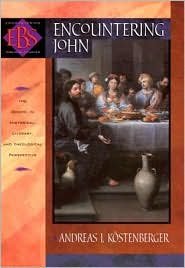
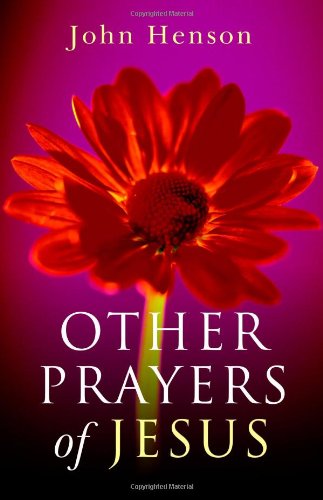
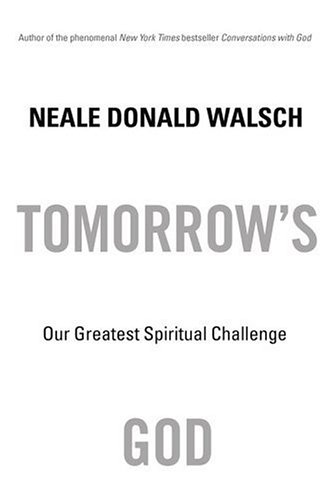
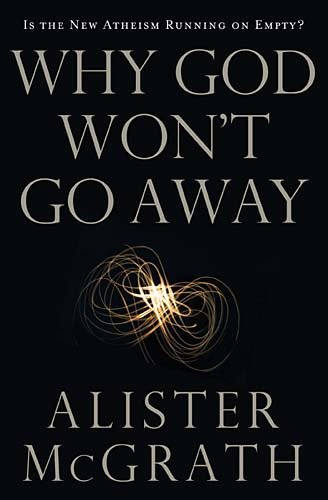
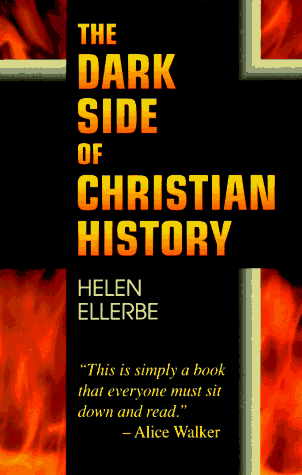

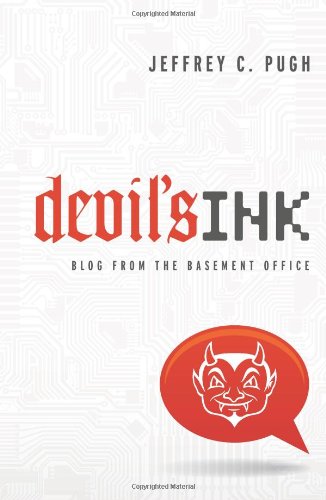
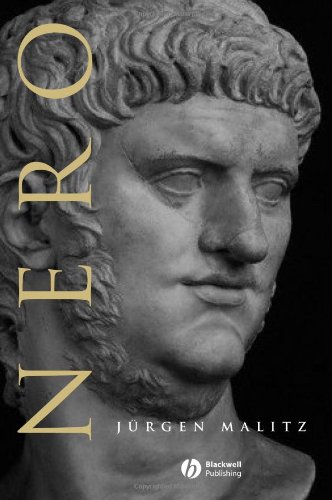
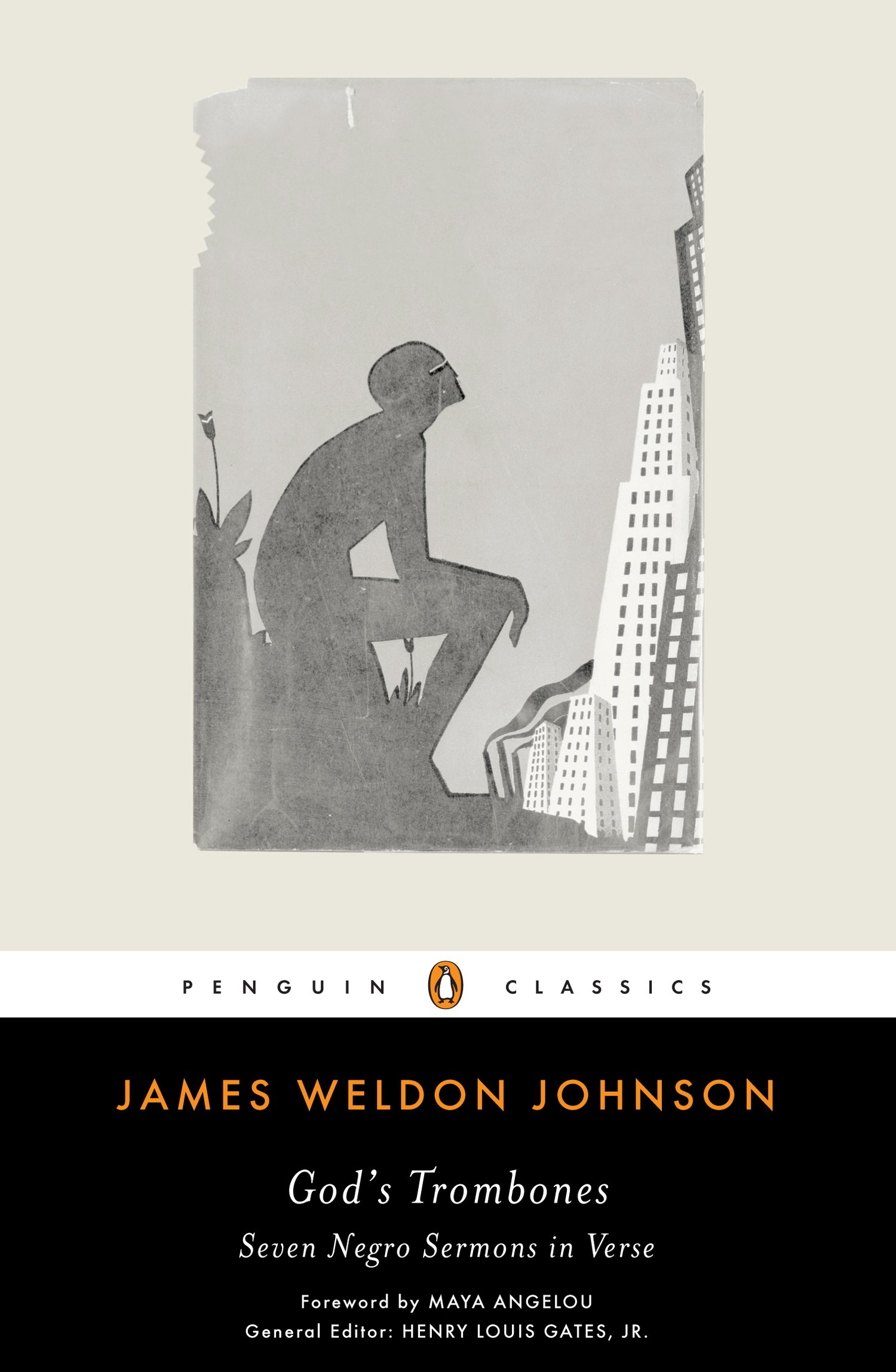
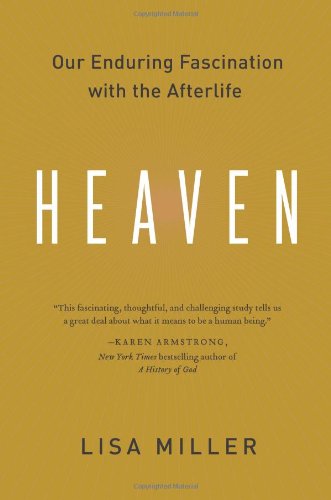
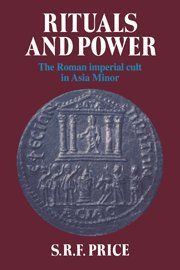
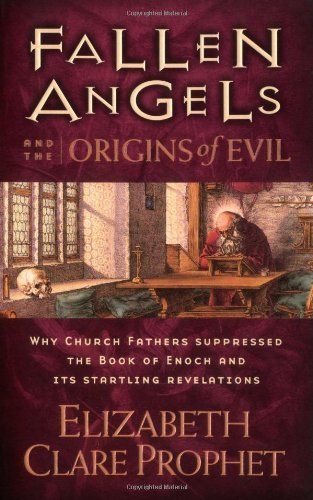

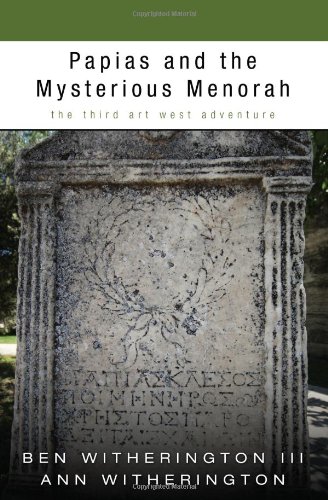

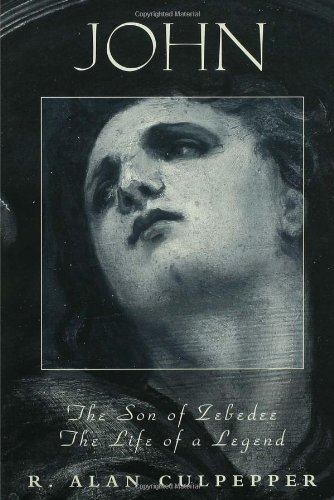
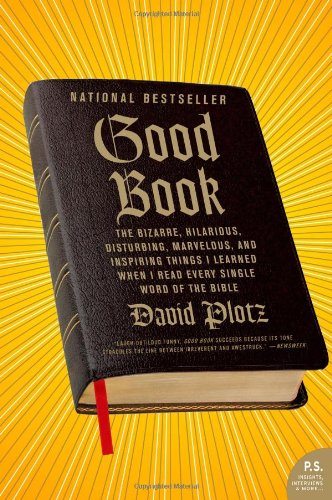

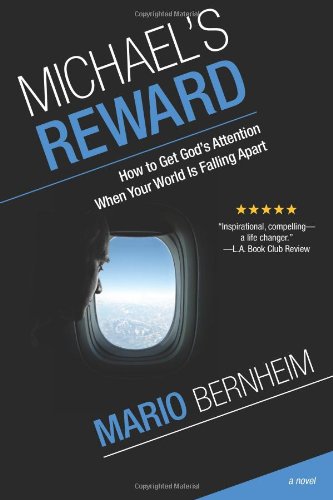









 354 Circles
354 Circles
 603 Goodreads Friends & Fans
603 Goodreads Friends & Fans

 Hello! I'm an author, historical Jesus scholar, book reviewer, and liberal Christian, which means I appreciate and attempt to exercise the humanitarian teachings of Jesus without getting hung up on any particular supernatural or religious beliefs.
The Bible is a magnificent book that has inspired and spiritually fed generations for thousands of years, and each new century seems to bring a deeper understanding of life’s purpose. This is true of not only Christianity; through the years, our age-old religions are slowly transforming from superstitious rituals into humanitarian philosophies. In short, we are growing up, and I am thrilled to be riding the wave.
I avidly read all thought-provoking religion titles. New authors: I'd love to read and review your book!
Hello! I'm an author, historical Jesus scholar, book reviewer, and liberal Christian, which means I appreciate and attempt to exercise the humanitarian teachings of Jesus without getting hung up on any particular supernatural or religious beliefs.
The Bible is a magnificent book that has inspired and spiritually fed generations for thousands of years, and each new century seems to bring a deeper understanding of life’s purpose. This is true of not only Christianity; through the years, our age-old religions are slowly transforming from superstitious rituals into humanitarian philosophies. In short, we are growing up, and I am thrilled to be riding the wave.
I avidly read all thought-provoking religion titles. New authors: I'd love to read and review your book!
 Hi! While Lee writes the articles and reviews the books, I edit, organize, and maintain the blog. The views expressed here are Lee's but I'm his biggest supporter! :-)
Hi! While Lee writes the articles and reviews the books, I edit, organize, and maintain the blog. The views expressed here are Lee's but I'm his biggest supporter! :-)
Connect With Me!